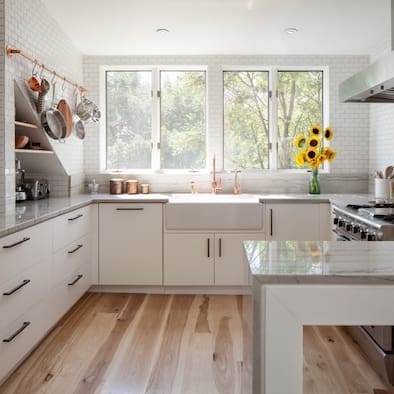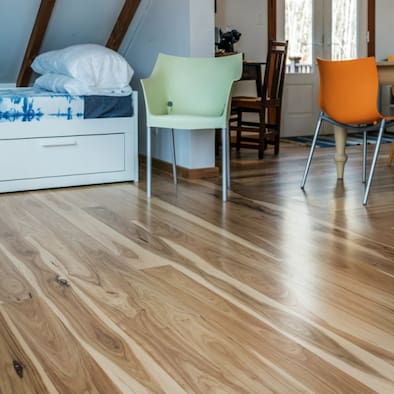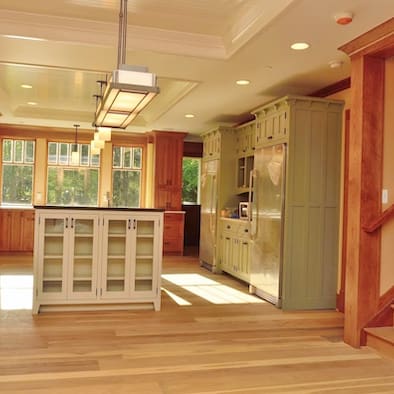Hickory Wide Plank Flooring
Of all the varieties of hickory that grow in the United States, our hickory is derived almost exclusively from pignut hickory, the hardest of them all.
About Our Wide Plank Hickory Flooring
Hickory is denser than other hardwoods of the northern forest, including maple and oak. You may be familiar with the shagbark variety of hickory, which is easily recognized by its long shaggy strips of bark. The contrast between hickory’s cream colored sapwood and warm brown heartwood creates a light and dark striated floor that is equally at home in a traditional or modern setting. With a clear finish, hickory’s color variation can be played up, or with a darker stain, hickory’s color variation can be minimized.
Let us help you find your perfect floor
Our floors are made in the U.S.A. with wood from well-managed U.S. forests. Our family has made wide plank flooring for over 55 years, and we enjoy creating enduring floors that are a healthy and environmentally friendly solution for our clients’ homes.




